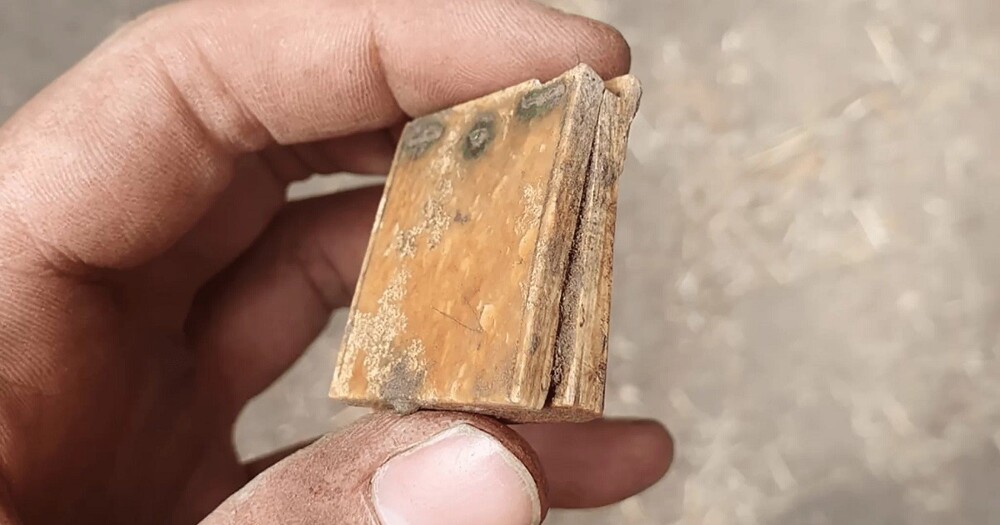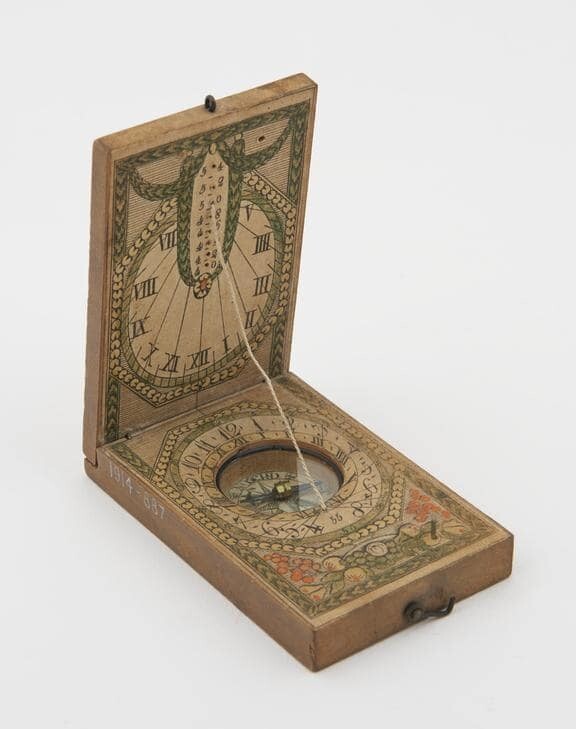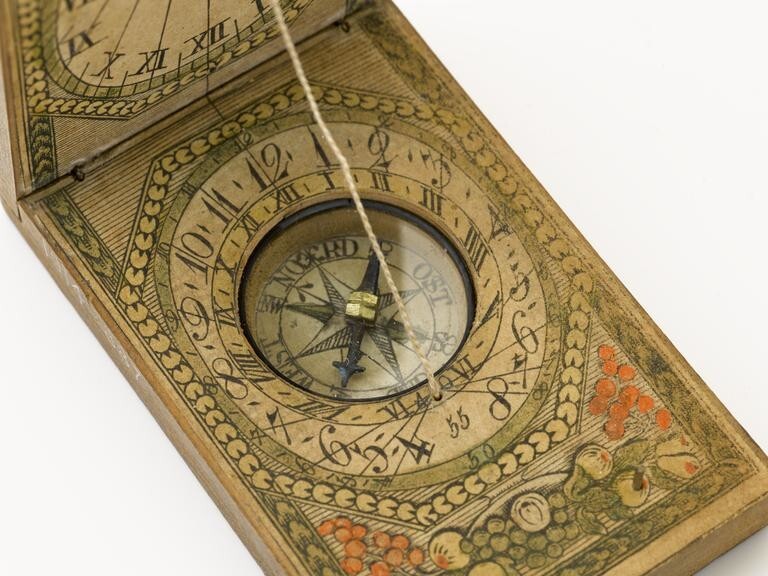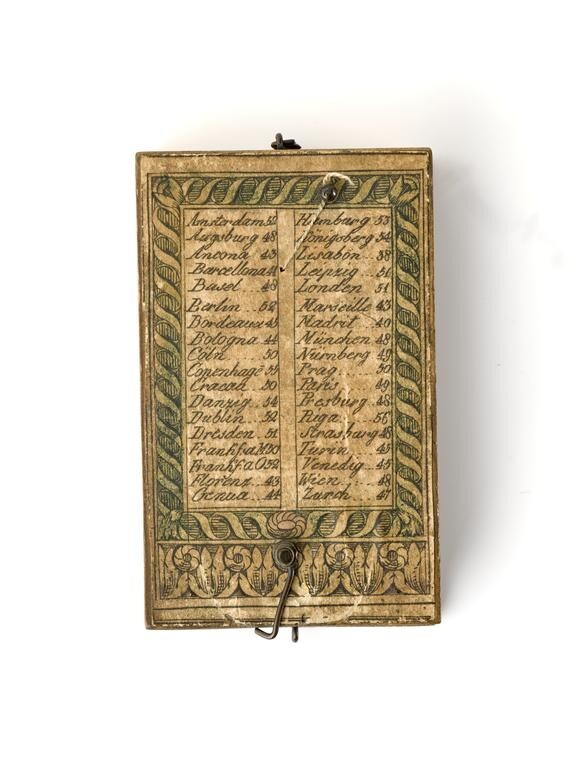In Germany, found a pocket sundial from the Middle Ages (4 photos)
Students of the University of Marburg during excavations at the site churches found a sundial the size of a matchbox. Device made of bronze and wood. Presumably, the clock of the late era The Middle Ages belonged to the Brothers of Common Life - a monastic order, founded in the Netherlands at the end of the 14th century. 
The Brotherhood of Common Life was founded by a Dutch theologian and preacher Gert Grote, over time, the movement spread to Netherlands, Germany and Switzerland. The community settled in the old monastery building from 1527, located in the upper part of Marburg. 
An example of a pocket sundial, Germany, 1776-1800.
According to Professor Felix Teichner, head of archaeological group, a similar object was first found on the territory Hesse, and its manufacture required a high level of knowledge in the field astronomy and mathematics, as well as craftsmanship. 
To identify the artifact, the scientists compared the find with a similar product from Switzerland. An old clock consists of a flat disk and gnomon, which casts a shadow on the plate and allows determine the time by the position of the sun. The earliest known sundial dates back to 1500 BC. 
Archaeologists continue to excavate in the hope of discovering new artifacts.























